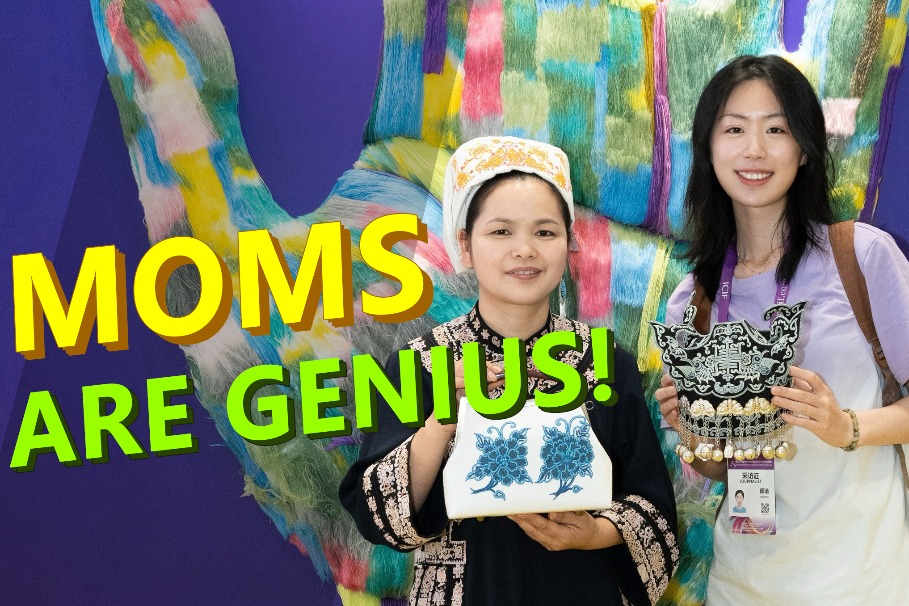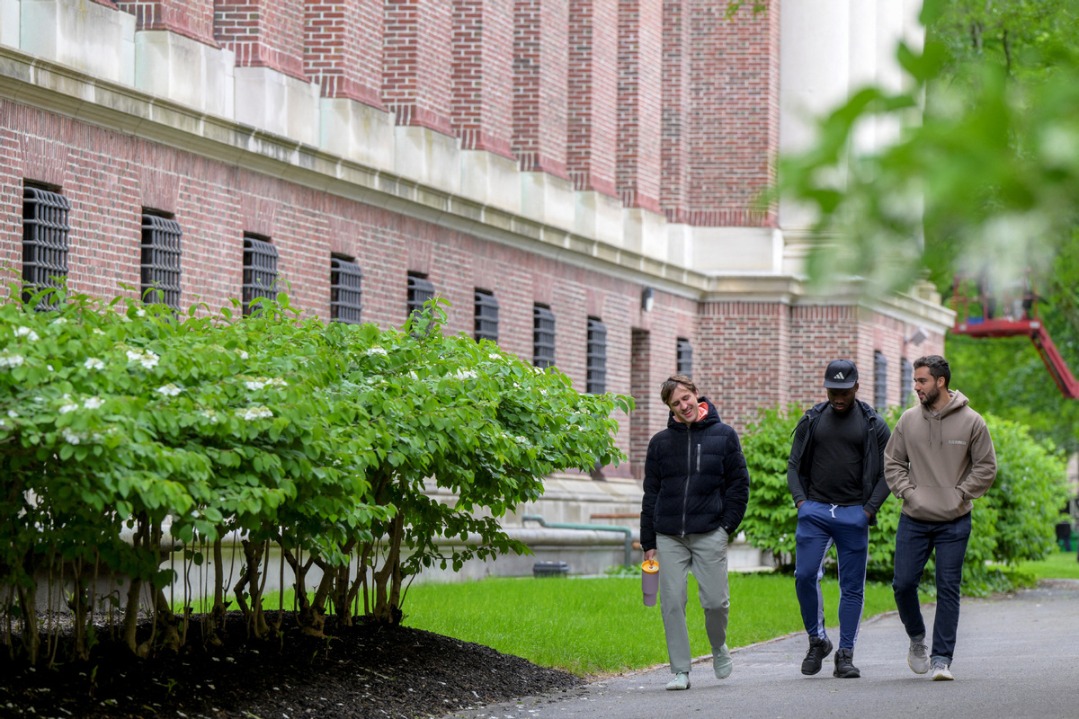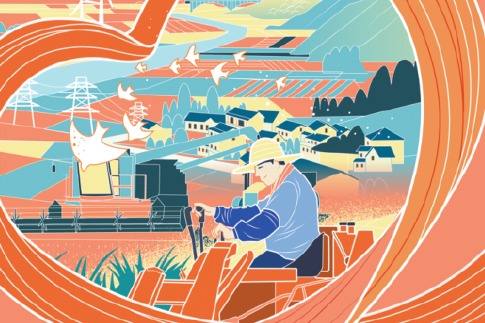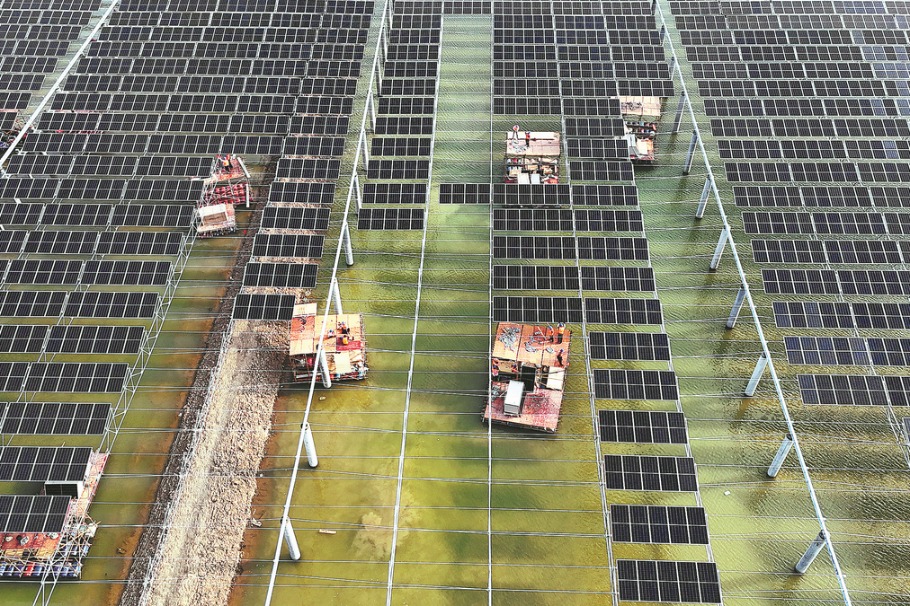Investment in rural youth propels rural vitalization


Nearly 500 million people in China live in rural areas, with the agricultural workforce accounting for 25 percent of the total labor force in the country. But for many rural workers, the road to economic empowerment remains difficult, hindered by poor infrastructure and limited connectivity with larger markets.
Vitalizing the rural economy is a priority, including investing in local talents, for the government. In fact, China's No. 1 central document for 2025 emphasizes the importance of cultivating homegrown expertise by, among other things, training farmers, supporting rural artisans, and building a strong pool of skilled and practical professionals to drive rural areas' development.
Therefore, the IFAD has been partnering with the government to channel resources, training and investment on talented youths in rural areas.
I've had the privilege of interacting with two women who are bringing this vision to life through IFAD-supported projects. Both are university graduates who chose to return to their rural hometowns in Yunnan and Hunan provinces, respectively. With deep roots in their communities and a commitment to inclusive growth, they have transformed traditional industries — chili processing and tea production — into thriving enterprises.
Their brands have gained national reputation and, more importantly, their endeavors have created jobs and helped increase local people's income, bringing hope to rural families. The two are powerful examples of how young people's leadership, matched with targeted support, can drive rural vitalization from the ground up.
In April, I visited the IFAD's project in the mountainous province of Yunnan. Amid the flourishing pepper plantations, I met Liu Yonghong, founder of Zhaotong Sinong Food Technology Co Ltd.
Knowing the value of her hometown's high-quality chilis, Liu gave up her job in the catering industry in Kunming, Yunnan province, and Shenzhen, Guangdong province, to return to Zhaotong in Yunnan seven years ago to start a chili processing business. She built nationally recognized brands, producing chili sauce and oil and supplying to restaurant chains such as Haidilao with key ingredients. Under her leadership, the Zhaotong Sinong Food Technology Co mobilized and supported more than 15,000 farmers to grow chilis on 50,000 mu (3,333.33 hectares), helping rural households increase their income and gain long-term market access.
But Liu's vision is fueled with considerations beyond business; it is based on a mantra she lives by: "We build the present and shape the future". She said, "Personal wealth alone means little…What truly makes me proud is helping more people to live better lives and bringing our hometown's industry out of the mountains."
To support her local community, she arranged shuttle buses for the company's elder female workers to commute from remote areas, and set up a Women's Entrepreneurship Training Base with the Zhaotong Women's Federation. Among the 630 women who have received training, 52 have started small businesses of their own, creating more than 400 new jobs.
As the demand for her products grew, Liu faced new operational constraints. When her original factory could no longer handle both finished and semi-finished production, she decided to build a new facility specializing in high-value deep-processed chili products.
To support the expansion, the IFAD's Yunnan Rural Revitalization Demonstration Project provided 4.99 million yuan (about $690,000) for the construction of a pickled vegetable processing line as well as the purchase of equipment. This will ensure the company keeps growing without leaving rural inhabitants and workers behind.
The other woman, Chen Xiaojuan, has transformed a lifelong passion into thriving business, improving the livelihoods of people around her in the tea-covered hills of Guzhang county, Hunan province. Eight years ago, she started the Yizhanqing Tea Cooperative — which manages more than 300 mu of tea plantations, nearly a quarter of which is certified as organic. Her endeavors have helped lift more than 300 smallholders working in the cooperative out of poverty. The company's premium teas have even made it to the highly valued Shenzhen Spring Tea Expo.
Chen shared not only her story but also the cooperative's finest organic tea with me. She said that by 2023, the rising yield, particularly of organic tea, had started outpacing the cooperative's processing capacity. To bridge this gap, she secured a 300,000 yuan support loan from the IFAD-funded Hunan Rural Revitalization Demonstration Project.
Chen used the amount to expand the processing facility and enhance production efficiency. She also initiated training programs to boost the technical capacity of local growers, training 64 farmers in high-yield organic cultivation techniques, and equipping them with the skills needed to adopt more sustainable and modern agricultural practices.
The journeys of Liu and Chen show that investment in the rural youth can transform rural areas and improve rural people's livelihoods. They also show how the IFAD's resources can catalyze development finance to drive change.
Let us remember not only the dignity of work but also the leadership and dedication of those who perform that work.
The author is IFAD's representative in China and head of the Regional South-South and Triangular Cooperation Center for Asia and the Pacific.
The views don't necessarily reflect those of China Daily.
If you have a specific expertise, or would like to share your thought about our stories, then send us your writings at opinion@chinadaily.com.cn, and comment@chinadaily.com.cn.

































